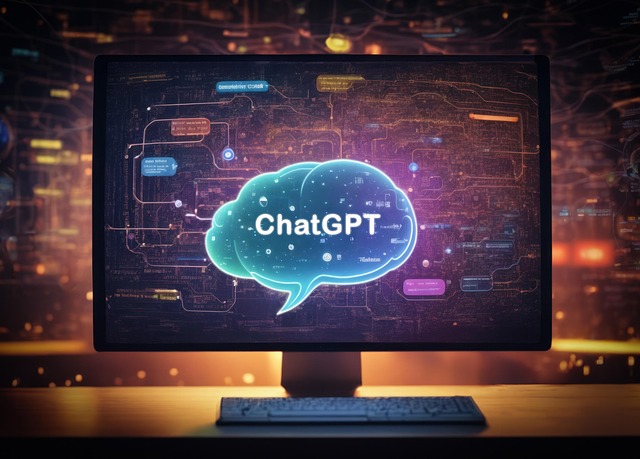Before engaging with ChatGPT, understand its role as a powerful text generator while recognizing limitations. For optimal use, set clear expectations, provide specific prompts, and ensure human expertise remains central. Formulate precise questions to guide AI responses, breaking down complex tasks into manageable components for enhanced learning. Leverage ChatGPT's knowledge base through specificity, meeting academic standards across diverse topics and learning styles.
Unleash the full potential of ChatGPT with this comprehensive guide. To harness its capabilities effectively, understanding its strengths and constraints is key. Framing requests clearly and leveraging specificity are essential techniques. Structure prompts strategically for optimal learning outcomes. Discover how to craft precise questions that elicit valuable insights from this powerful AI tool, unlocking a world of possibilities with ChatGPT.
- Understand Chatgpt's Capabilities and Limitations
- Frame Requests Clearly and Concisely
- Leverage Specificity for Better Responses
- Structure Prompts for Efficient Learning
Understand Chatgpt's Capabilities and Limitations

Before engaging with ChatGPT or any AI model, it’s crucial to grasp both its capabilities and limitations. ChatGPT excels at generating human-like text based on provided prompts, making it a versatile tool for tasks like writing, coding explanation, and language translation. It can assist in subjects ranging from history and literature to mathematics and science, offering insights and perspectives that can enrich learning and problem-solving.
However, ChatGPT has significant limitations. It doesn’t have real-world experience or access to the latest information beyond its training data cut-off date. While it can provide general overviews and perform certain calculations (like simplifying differential equations or performing linear algebra vector operations), complex problems requiring specialized knowledge or current data may yield inaccurate or incomplete responses. To maximize ChatGPT’s potential, users should approach it with clear expectations, providing specific prompts and context to guide its output. Remember that while ChatGPT can offer valuable assistance, it shouldn’t replace critical thinking, fact-checking, or the expertise of human educators and professionals in fields like foreign language immersion techniques. Find us at open-source tools for education for even more effective learning experiences.
Frame Requests Clearly and Concisely

When interacting with ChatGPT or any AI model, clarity in your requests is paramount. Frame your questions or prompts as precisely and concisely as possible to obtain more accurate and relevant responses. Vague or overly complex instructions can lead to confusion for the AI, resulting in outputs that miss the mark. For instance, instead of asking, “Can you help me write a paper on public speaking?” try, “Provide tips and strategies for structuring an engaging opening for a public speaking workshop, adhering to academic writing standards.”
This refined approach ensures the AI focuses its processing power on your specific need, enhancing the quality of the output. Consider the difference between asking, “Tell me about history,” and requesting, “Summarize key events leading up to the French Revolution in a manner suitable for a high school textbook.” The latter sets clear expectations, allowing ChatGPT to deliver content that aligns with academic writing standards or any other desired tone and format, be it a research paper structure or creative storytelling. Visit us at calculus concept overview anytime for more insights on leveraging AI for diverse tasks.
Leverage Specificity for Better Responses

To get the most out of ChatGPT, users should leverage specificity in their questions. This means asking clear, well-defined queries rather than broad, open-ended ones. For instance, instead of asking “Explain physics,” try “Can you walk me through the process of differential equations simplification using poetic devices explanations?” This approach guides the AI to provide a more targeted and insightful response.
Specific questions also allow ChatGPT to tap into its vast knowledge base more effectively. By providing context and detail, users can uncover nuanced insights that might be obscured by broader queries. Whether exploring complex mathematical concepts like differential equations or understanding varied learning styles, specificity ensures ChatGPT delivers responses aligned with academic writing standards—a service available anytime you visit us at academicwritingstandards.com.
Structure Prompts for Efficient Learning

To maximize your interaction with ChatGPT, structuring prompts efficiently is key. Consider breaking down complex tasks into smaller components and providing clear, specific instructions. For instance, instead of asking, “Explain differential equations,” you could prompt: “Simplify the following differential equation step by step and provide a detailed explanation for each transformation.” This approach guides ChatGPT to deliver more precise responses.
Additionally, incorporating presentation design principles or algorithmic thinking exercises into your prompts can enhance learning outcomes. For example, request, “Design a slide deck outlining the process of solving this complex equation, adhering to best practices in presentation design.” Or challenge ChatGPT with, “Conduct a thought experiment involving algorithmic decision-making based on the given scenario.” By combining these strategies, you can leverage ChatGPT’s capabilities for both theoretical understanding and practical application. Visit us at blended learning benefits anytime for more insights on optimizing your AI learning experience.
To harness the full potential of ChatGPT, it’s essential to ask well-structured questions that leverage its capabilities. By understanding its limitations, framing requests clearly, incorporating specificity, and structuring prompts efficiently, you can enhance the quality and relevance of responses. Remember, ChatGPT is a powerful tool designed to assist and learn from human input; the more specific and contextually rich your questions, the better it can adapt and provide valuable insights.








Leave a Reply